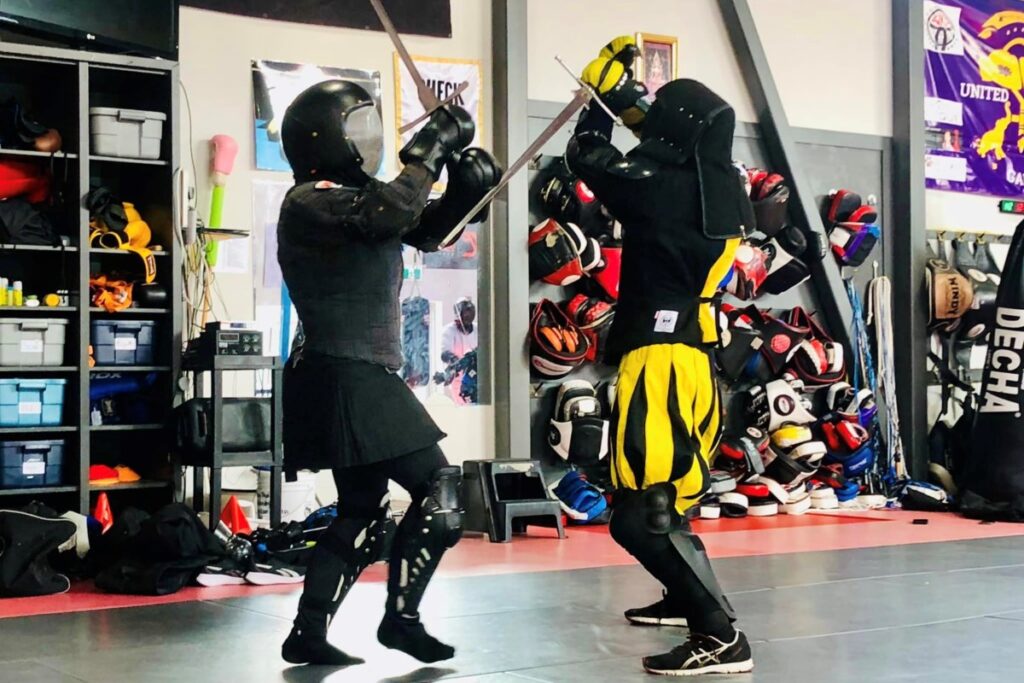Today and tomorrow, a group exploring historical European martial arts will bring historical sword-fighting to southern Alberta
Bighorn Historical Combat, a recreational martial arts club founded in January of this year, will host Hornfest, a historic sword-fighting tournament, on July 13th and 14th at the Airdrie Martial Arts Centre.
The Horn Fest will feature a tournament-style sword fight between participants, as well as a sword-cutting contest to test the quality of participants' sword-cutting techniques and skills. Tournament organizers hope to hold a gender-neutral tournament on Sunday.
This is the first time the tournament has been held in Airdrie. Bighorn is a Historical European Martial Arts (HEMA) club activist and is a local newcomer, although the sport of historical sword-fighting has grown in popularity in recent decades.
Big Horn founder and Hornfest organizer Julian Schutze has been involved with HEMA events for the past 14 years and founded four historic sword-fighting clubs in British Columbia before moving to Alberta.
“I don't know a single boy who hasn't played knight with sticks in the backyard when he was five years old,” Schütze says. “I've always loved swords and armour and the main reason I started was for fitness. It was a great fun alternative to going to the gym. If anything, now I go to the gym because I want to get better at sword fighting, so that's a motivation in itself.”
Schütze said traditional sword-fighting clubs have grown in both popularity and maturity. The sport is still primarily about physically fit people swinging long swords, but there have also been major advances in technique and safety. It's not just a “barbaric sport” where you hit people with swords, Schütze said.
“I remember when the sport's biggest tournaments were just starting out,” Schutze says, “you had people traveling all over North America to take part in events with maybe 15 people. There was an event in California recently with 800 people. It's definitely growing rapidly, and it's great to see the reasons people take part diversifying.”
Historical swordplay is unique as a sport: it's not a nationally known and nearly universally played sport like basketball, baseball or hockey. But what's fascinating about historical swordplay is how the exchange of cultures and ideas transformed the sport, making it popular and beloved among participants, Schütze said.
“Every sport has its own niche,” he explained, “Some of the participants are very good at certain things, and if you can apply that, it works very well and everyone learns it from everyone else. There are a lot of people who take it very seriously and truly treat it like a martial art…You have an opponent, and they want to win, and you have to find a way to counter their knowledge and their technical application. It's a lot of fun.”
Schutze said this weekend's tournament will be a mix of fun and intense competition.
“The fighters are still deployed. [their] “We put our all into it,” he says, “but it's a very friendly atmosphere and the main goal is for everyone to just have a good time.”

